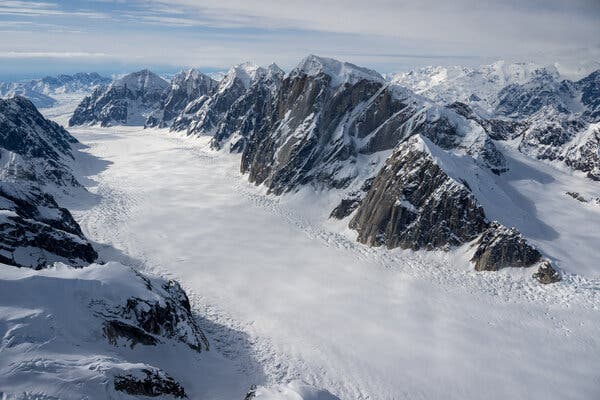As his bush plane circled the craggy peaks of the Alaska Range, the explorer Bradford Washburn peered down and had a burning thought.
Coursing down the southern slopes of Denali and Mount Silverthrone were the accumulated snows of thousands of winters, compacted under their own weight into colossal rivers of ice that filled the valleys for miles in every direction. At one particular spot in the white wilderness, Washburn noticed from above, all this glacial mass was somehow squeezing through a granite-walled corridor just a mile wide.
Washburn became convinced, he wrote, that beneath the ice lay a secret: The corridor was deep. Deeper, perhaps, than any other gorge on the continent, and maybe even the planet.
That was 1937. Nearly 90 years later, a team of scientists set off into the windswept mountains to measure the glacier with snowmobiles and ice-penetrating radar. It wasn’t easy: The Great North does not surrender its mysteries readily. The researchers almost didn’t think they’d found anything of interest.
Now, thanks to some clever analysis, and a bit of luck, they have put forth the most conclusive evidence yet that Washburn was right — that the area could be the deepest gorge in North America.
